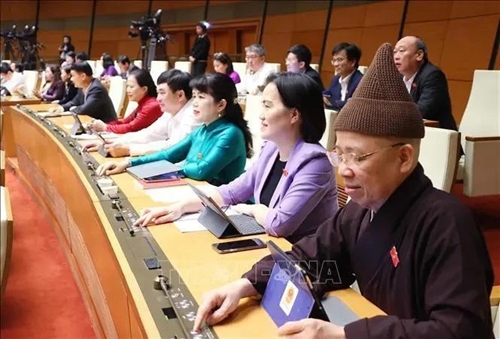The law is designed to protect the rights and best interests of minors. It aims to ensure that the handling of juvenile offenders is appropriate to their age, cognitive ability, personal circumstances, and the societal danger posed by their actions.
    |
 |
|
National Assembly deputies vote to approve the Law on Justice for Minors. |
The law focuses on educating and rehabilitating young offenders to help them correct their mistakes, improve their behavior, and become productive members of society.
It outlines measures for diversion, penalties, and legal procedures for juvenile offenders. It also addresses procedures for victims and witnesses, execution of sentences, reintegration into the community, and support for victims. It specifies the roles, duties, and responsibilities of organizations and individuals involved in juvenile justice.
Particularly, the law specifies diversion measures, which include reprimands restricted hours for activities and movement, apologies to victims, compensation for damage, participation in educational or vocational programs, mandatory psychological treatment or counselling, and community service.
Under the newly adopted law, minors eligible for diversion include those aged 16 to under 18 who commit minor or serious offences, those aged 14 to under 16 who commit very serious offences (excluding specified crimes under Article 123 of the Penal Code), and minors with minimal roles in group offences.
Source: VNA